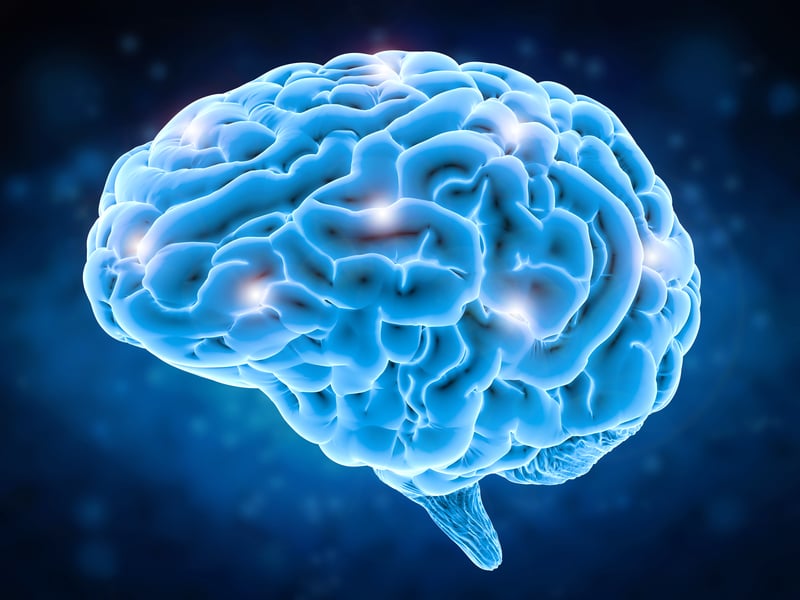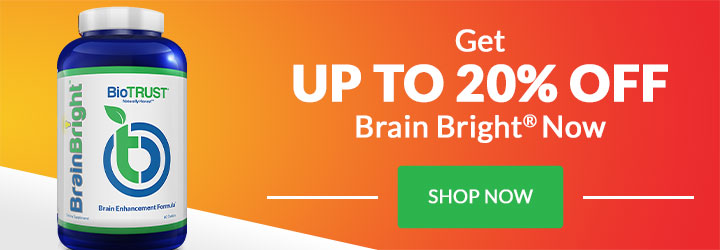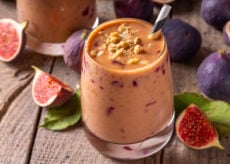What are Nootropics (and do they work)? A Beginner’s Guide

Smart drugs…brain boosters…cognitive enhancers…these are all nicknames for one of the most popular categories of supplements: Nootropics. While those are enticing terms, what are nootropics really? What are they used for, and how can they benefit you? Do they have any negative side effects? Are there any safe, effective nootropics?
These are all great questions, and we’ll dive into all of them and more as we peel back the layers to uncover exactly what are nootropics.
What are Nootropics?
The term “nootrope” comes from the Greek words noos for “mind” and tropein for “toward” and is loosely translated as “mind-turning.” And while these mind-bending compounds are becoming increasingly popular, the roots of nootropics run deep—we’re talking more than four decades ago!
The actual term nootropics was initially proposed in 1973 by Romanian psychologist and chemist Dr. Corneliu E. Giurgea, who has become known as “the founding father of nootropics.”1 Dr. Giurgea coined the term after he demonstrated a positive effect of piracetam—which he first created in 1964 and is considered the first nootropic—on cognitive improvement (including memory, learning, and creativity).
Unlike Central Nervous System stimulants (e.g., amphetamines) and other psychotropic drugs, piracetam offered cognitive benefits without negative side effects (such as dependence). In an effort to characterize this unique category of mind-turning compounds, Dr. Giurgea provided the following principles for nootropics:2
- They should enhance learning and memory.
- They should enhance the resistance of learned behaviors/memories to conditions that tend to disrupt them (e.g., electroconvulsive shock, hypoxia).
- They should protect the brain against various physical or chemical assaults (for example, by barbiturate drugs or scopolamine).
- They should increase the effectiveness of the tonic cortical/subcortical control mechanisms.
- They should lack the usual pharmacology of other psychotropic drugs (e.g., they shouldn’t impair motor function or possess sedative qualities), and they should have very few (if any) side effects and extremely low toxicity.
Belgian pharmacologist Vladmir Skondia offered a somewhat longer set of criteria for defining nootropics in 1979. However, his mechanistic requirements make his list more controversial.3
Despite the efforts of these scientists, there’s still disagreement among pharmacologists and researchers as to what actually constitutes a nootropic. Having said that, the vast majority agree nootropics are ingestible substances that act on the mind and have at least the following properties in common:4
- They improve some aspect of cognitive performance—usually learning and/or memory.
- The improved cognitive performance is most readily (although not necessarily) seen under conditions of disturbed neural metabolism (such as hypoxia, intoxication, aging, or trauma).
- They have very minimal or essentially no side effects even at very high doses.
- They must pass the blood-brain barrier.
While it’s a catch-all term, it seems like we can best sum up nootropics as ingestible substances that act on the mind, provide cognitive “benefits,” have very few (if any) side effects, and have very low toxicity. Keep in mind that “benefits” has a very broad range of meaning, which we’ll discuss more below. It’s important to point out that nootropics can be either synthetic (e.g., piracetam) or natural (e.g., adaptogenic herbs).
Also, even though the terms are often used interchangeably, smart drugs are not nootropics, and vice versa. Smart drugs are prescription medications intended to treat a mental or cognitive disorder. Examples include Adderall, Ritalin, and Modafinil, which are stimulants that may come with a cost (i.e., side effects). Nootropics, on the other hand, are intended to offer cognitive benefits without the side effects.
What are Nootropics Used For? 5 Powerful Reasons
Generally speaking, there may be two main reasons people take nootropics:
- Cognitive Performance: to acutely enhance cognitive function
- Cognitive Longevity: to protect or repair the brain (i.e., brain health)
According to Nootropics.com, “Nootropics allow users greater control over their states, moods, and cognitive abilities,” and there’s a wide range of functional benefits that can be reaped from nootropics.
1. Productivity
When many people think about nootropics, the first thing that comes to mind is the movie (and subsequent TV series) Limitless starring Bradley Cooper, who is able to access 100% of his brain abilities thanks to a mysterious pill. This is perhaps the most popular reason nootropics are sought after: They may boost focus, concentration, and perceived feelings of energy.
Another way to think of it is that the right nootropics may combat feelings of fatigue, cut through brain fog, and help clear through mental clutter. Certain nootropics may help with:
- Learning ability
- Recall
- Concentration
- Problem solving
- Clearer, quicker thinking
Along these lines, nootropics are often used for studying, taking exams, public speaking, writing, and other mentally-demanding tasks.
2. Mood
When used carefully, thoughtfully, and along with an overall healthy lifestyle, nootropics may be effective at boosting feelings of well-being and energy, promoting resilience, and helping ease feelings of stress and anxiety.
Perhaps the most well-known nootropics in this category include adaptogenic herbs (such as Ashwagandha and Rhodiola rosea), which may help increase resilience and rejuvenate a stressed mind and body, and L-theanine, which helps promote a calm, heightened sense of awareness. Several other nootropics may brighten mood and even promote better sleep.
3. Social Activity
Humans are social creatures, and there’s no question we thrive when we’re part of a tribe. However, regardless of where you sit on the introvert-extrovert spectrum, leading an active social life can take its toll.
- Being social can be extremely draining and exhausting.
- Many people experience tremendous social anxiety.
- Some of us may be looking to improve our social adeptness and clean up our bumbling mess of words and ideas.
Whatever the case may be, certain nootropics may be helpful. And since many people turn to booze for liquid courage and perceived stamina in social settings, nootropics may even save you the trouble of dealing with poor decisions and even the hangovers that often ensue. Basically, key nootropics may help in social settings by:
- Enhancing verbal fluency and agility
- Helping ease stress and anxiety
- Boosting feelings of energy and focus
Overall, certain nootropics may help enhance your social intelligence, help you navigate social environments, and help build relationships.
4. Exercise and Performance
While caffeine, one of the most widely studied ergogenic or performance-enhancing aids, isn’t going anywhere any time soon, many fitness fanatics, gym-goers, and athletes are exploring various nootropics to help them eek out record-setting and competition-winning performances for some of the very same reasons people turn to them to boost productivity: focus, concentration, and perceived feelings of energy.
On top of that, certain nootropics (such as alpha-glycerylphosphorylcholine, or Alpha-GPC for short) have shown promise in increasing strength and power (i.e., explosive performance).5 What’s more, by positively influencing the brain and CNS, nootropics may also improve reaction time, especially under fatigued conditions.6 For a competitive athlete, even the slightest improvement could be game-changing.
Nootropics have become increasingly popular in pre-workout supplements, as they are touted to enhance the mind-muscle connection, which may enhance muscle gains from strength training, increase stamina, and boost resilience.7 This means nootropics may be useful for a variety of athletes and sports, ranging from endurance to strength and power to cross-training.
5. Brain Health
While there is some controversy, some nootropics are touted to support brain health through a variety of neuroprotective effects. For instance, providing protection against excessive oxidative stress and free radical damage can promote brain health. Meanwhile, certain nootropics may promote a process called neurogenesis, which stimulates the generation of new neurons.
A good example is Ginkgo biloba, an herbal supplement derived from the Ginkgo biloba tree, that is a very popular nootropic that many take to boost brain power. In addition to improving memory and attention, Ginkgo may improve blood flow to the brain, promote healthy mitochondrial function, and provide protection against oxidative stress—all factors that can support brain health and cognitive function.8
Are Nootropics Safe?
By definition, nootropics should be safe. By and large, nootropics are indeed generally regarded as safe, and for the most part, they have a high degree of safety associated with their use. However, as mentioned previously, the definition of a nootropic remains somewhat murky, and as a result, nootropics represent a very broad range of compounds.
Some continue to confuse smart drugs, which package a range of potential negative side effects, with nootropics. Plus, there’s a limited amount of research in humans on many of these nootropic substances. In other words, while they have a high degree of perceived safety, one must proceed with caution, especially with untested compounds or substances that may be or closely resemble drugs.
Are There Any Side Effects Associated with Nootropics?
Generally speaking, when you heed the “best practices” (below), the side effects of nootropics are minimal, especially in relationship to the potentially nasty side effects often experienced with stimulants, psychoactive drugs, smart drugs, etc. That’s not to say, however, that all nootropics are free from side effects for everyone. By definition, they’re meant to be safe, but the fact of the matter is that just as individuals vary, so too can results.
Assuming you are following best practices, there may be some minor adverse effects associated with nootropic use, but truth be told, these are quite rare. The most commonly reported issues are gastrointestinal-related (e.g., nausea, bowel movement frequency/consistency, upset stomach), sleep-related, mood-related, and headaches.
What are Nootropics: Best Practices
When it comes to experimenting with nootropics, here are some “best practices” from the experts at Nootropics.com.
- Do some additional research. As fascinating as this topic is to me and as much time as I put into this review, it is by no means all-encompassing. Feel free to branch out and review some other sources, especially if you are interested in more information about specific nootropics. In case you couldn’t tell, I think Nootropics.com wouldn’t be a bad place to continue your journey.
- Be your own scientist (Part 1). Keep in mind that individual responses vary and can be very subtle. Be the best detective you can be to see how your experiment affects your behavior, mood, productivity, sleep, digestive system, etc. In other words, track dependent variables, even if that means using a subjective scale (i.e., rating things on a scale of 1 – 5).
- Be your own scientist (Part 2). A good scientist also knows to change only one independent variable at a time. As alluring as it may be to add two, three, or more nootropics at once, it’s a good idea to start with one at a time. If you add too much at once, you’ll have a harder time figuring out what works—or what doesn’t.
- Start smart. Most nootropics have pretty standard recommendations for how much to take. Heed the suggestions provided on the label. Of course, if you have any questions, you take any medications, and/or you are being treated for any medical conditions, you should always consult with a qualified healthcare practitioner prior to using any nootropics. More is not always better.
- Be mindful. Even though nootropics are unlike stimulants, psychoactive drugs, and other smart drugs, pay respect to tolerance and dependency. In the case of the former, if you notice you’re not getting the same desired effects from a given nootropic or amount, don’t increase how much you’re taking. It’s time to cycle “off” and give your body a chance to regulate. Even though nootropics are not chemically addictive, some people find they rely on the effects. If you notice that to be the case, it’s time to take a step back and slowly reduce how much you’re taking.
- Cycling. Nootropics are commonly cycled on and off to prevent (or in response to) tolerance and/or dependency. Cycling protocols can vary. Some people suggest two weeks on and two weeks off; others suggest five days on and two days off. Either way, the goal is to not become reliant or accustomed to the nootropics. During the cycling, you can alternate between nootropics/stacks. In other words, you don’t have to be completely off as long as you’re using different nootropics.
Supercharge Your Brain
Simply put, nootropics is an umbrella term that encompasses a WIDE range of supplements—both natural and synthetic—that enhance some aspect of cognitive function. Unlike smart drugs, psychoactive drugs, and stimulants, they have few, if any, side effects. Do you need nootropics? No. But that’s probably not the right question. Can you benefit from nootropics? It’s very likely that the right nootropic—or stack of nootropics—can boost productivity, mood, performance, resilience, and even brain health.
Discover How You Can Sharpen Your Focus, Improve Your Active Memory, & Light Up Your Drained Brain With BioTrust Brain Bright®
PLUS you can take 15% off your Brain Bright order today when you use the discount code BLOG15 at checkout!
==> Get an Extra 15% Off Brain Bright Now (Use Code: BLOG15 at Checkout)







